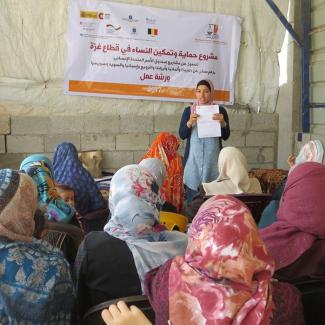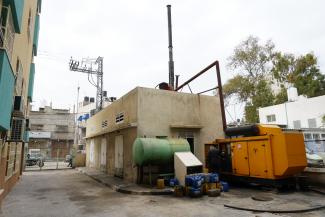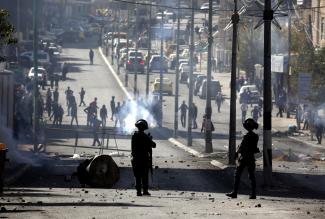According to UN Women, gender-based violence (GBV) in the oPt has assumed a higher profile in recent years. In 2010 the Palestinian Central Bureau of Statistics (PCBS) undertook a survey which revealed that levels of domestic violence had declined in the West Bank compared with 2005, but had increased in the Gaza Strip. The rise in GBV in Gaza was attributed to the deteriorating humanitarian situation following the Israeli blockade imposed after the Hamas takeover in 2007, and the devastating impact of the ‘Cast Lead’ hostilities in December 2008-January 2009.
The Monthly Humanitarian Bulletin | January 2018
UNRWA is facing an unprecedented financial crisis, risking the agency’s ability to deliver urgent humanitarian assistance in the OPT, including to almost one million people in the Gaza Strip. Electricity outages of up to 16 hours a day, continue to undermine the provision of basic services in the Gaza Strip, despite an increase in electricity supply from Israel. Funding for emergency fuel distributed by the UN to 175 critical facilities will be exhausted by mid-February; $5.6 million is urgently required to prevent a collapse of services. 17 Palestinians were killed by Israeli forces across the OPT between 6 December 2017 and 30 January 2018 during protests and clashes, with some cases raising concern about excessive use of force.
In this document
Very few of the measures agreed in the reconciliation agreement between Fatah and Hamas on 12 October 2017 have been implemented to date and improvements in conditions in the Gaza Strip are extremely limited.
Following the United States’ recognition of Jerusalem as the capital of Israel on 6 December 2017, the occupied Palestinian territory (oPt) experienced heightened tensions and violence, mainly Palestinian protests and clashes, which resulted in a significant rise in casualties versus previous months.
Recent weeks’ developments have brought the Gaza Strip to the brink of collapse. Firstly, UNRWA, which is one the main service providers and source of livelihood for about 1.3 million Palestine refugees in Gaza, is facing an unprecedented financial crisis. This has followed indications from the United States, the Agency’s main donor, that overall contributions to UNRWA in all its areas of operation in the Middle East in 2018 will fall far short of the more than $350 million it provided in 2017. UNRWA’s humanitarian interventions, which include food assistance to almost one million people in the Gaza Strip, are at particular risk. To date in 2018, none of released US funding has been provided to these projects and other donor contributions have not been sufficient to cover the gap. UNRWA’s projects constitute 53 per cent of the overall requirements for the 2018 Humanitarian Response Plan (HRP), the multi-agency strategy and funding appeal for the humanitarian community in the oPt.












